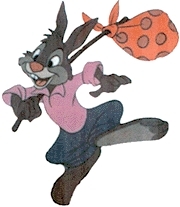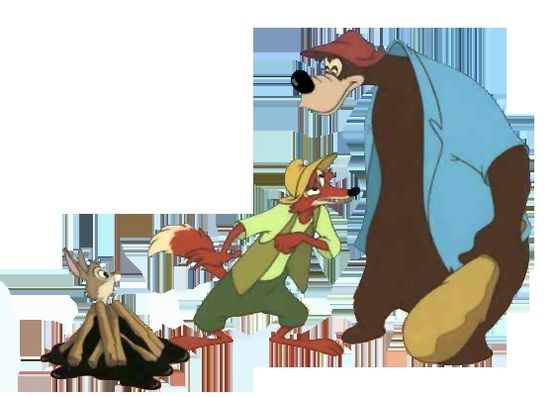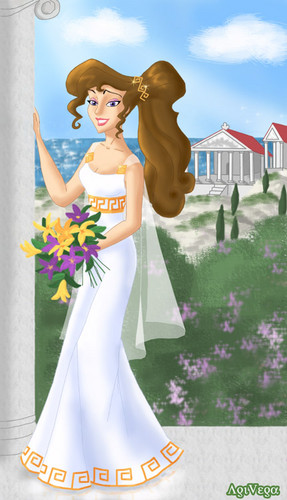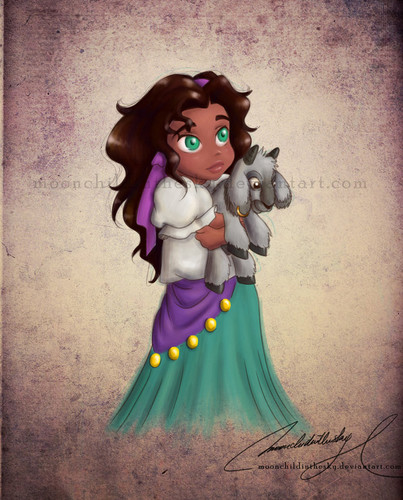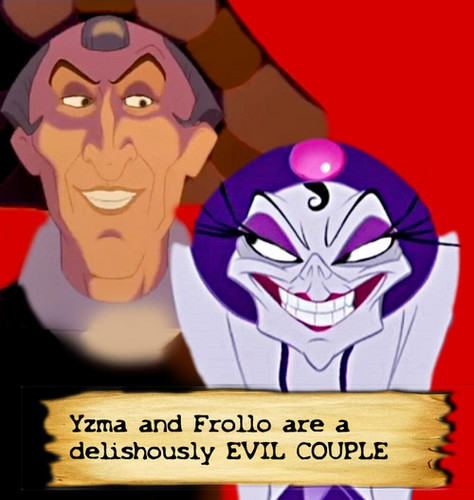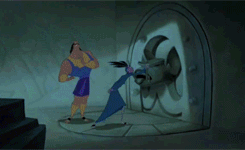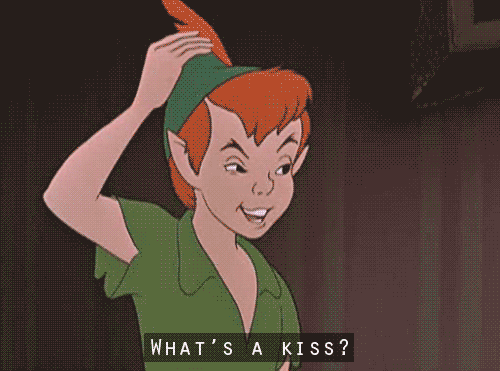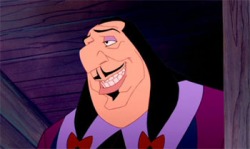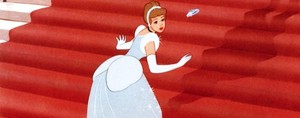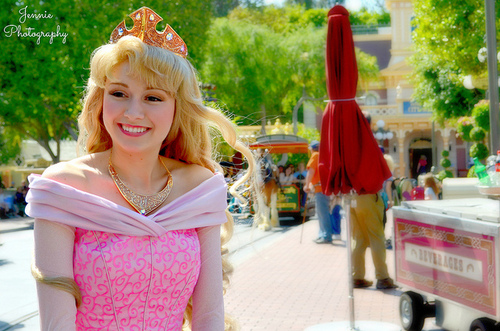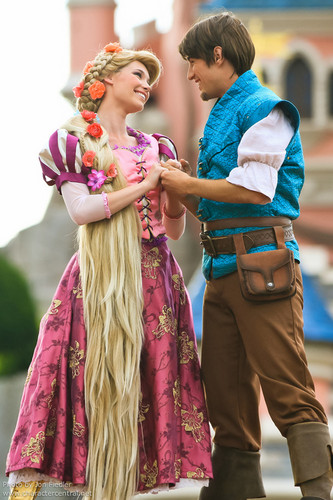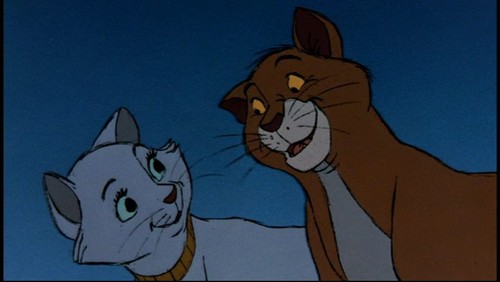I thought for a long time if I should write this review または not. The most obvious reason is: I’m not sure if I want the discussion. The other reason is: I’m not really sure how equipped I am to talk about that matter. While Germany has its own historical baggage (and a quite heavy one), it was never a big Colonial power, and racism against black…well, let’s put it this way: The US made a big deal of Jesse Owens winning ゴールド in Munich, believing that this was a big insult for Hitler. The truth is, Hitler didn’t really care. He shrugged this away because he considered Africans as primitives either way, so it didn’t really matter if they were stronger than his athletes または not. He didn’t really care, because there really wasn’t much of a black population in ヨーロッパ during this time. Jesse Owens later said: “Hitler didn't snub me – it was FDR who snubbed me. The president didn't even send me a telegram.”
Why I am telling this story? Because I want my American readers to understand that their racism problems are very much a cultural matter, grown out of their history. I think I was ten before I even meet a black-skinned child in Germany, and I life in an area with a high foreign population. Nowadays it’s different, due to the political unrest in Africa, and I’m not trying to say that there isn’t racism. But there is a difference between racism which is based on an “everything foreign is bad” attitude and the kind of racism which is connected to a long history of suppression. The latter is way もっと見る complicated.
So when I write this, keep in mind that I’m coming very much from an outside perspective. There are a lot of stereotypes I would most likely not even recognize, because I didn’t grew up with them. あなた can see it as me talking about something I can’t really understand. または あなた can see it as an advantage, because I can look at this movie without being influenced によって all the baggage which comes with the topic.
1. Let’s talk about stereotypes
Some people have the attitude that stereotypes are always a bad thing, no matter what. I disagree. Stereotypes actually have an important function. あなた don’t believe me? Well, have あなた ever considered what stereotypes actually are? They are conclusion we made based on experiences and knowledge we collect. For example we know that a lion can be dangerous for humans. Because of this, we usually wouldn’t try to play with one. The stereotype that a lion might kill us warns us away. Someone who has been bitten によって a dog at one point might stay away from them in the future, just to be on the 安全, 安全です side. Stereotypes sometimes protect us and sometimes they prompt us to be overly cautious. But they have a function.
Stereotypes in the media are not always a bad thing either. Especially ディズニー often uses stereotypes and then mocks them. I always thought that it tells much もっと見る about us if we are able to see stereotypes in animated 動物 than it does reinforce 発言しました stereotypes. But even if あなた see them used “seriously”, あなた shouldn’t judge that fast. Portraying a foreign character is always a balance act over a cultural minefield. Let’s say, あなた have a British character in an American 表示する (to pick a もっと見る または less harmless example). He naturally has to speak with some sort of British accent, right? It’s a stereotype, but what can あなた do. Is he allowed to drink tea? It seems to fit the character, but it is so stereotypical British. And so on, and so on.
Stereotypes don’t materialize out of the thin air. They become a problem though, when they are used in a hateful manner. Just watch war propaganda カートゥーン to get what I mean, though even those are not necessarily outright bad. There is a big difference between, let’s say, Disney’s link and this link
2. A few words about the book
Now the stereotypes in Song of the South, most of the originated from Uncle Tom’s Hut. あなた know, the book which gave the abolitionist movement a big push and did its part to make sure that slaves were seen as humans and not as cattle. But even もっと見る important, they originated from reality. The Uncle Remus book were written によって Joel Chandler Harris, who was the illegitimate child of Irish immigrants, worked as a teenager on a plantation as a printer’s apprentice and spend much of his time in the slave quarters, listening to the stories he later wrote down.
Harris own view on slavery was not exactly what we would call enlightened nowadays. He was not really against slavery in itself, but against the abuse of slaves, buying very much in the idea of the “good slave owner”. But one has to give him credit for preserving a piece of folklore which might have been ロスト nowadays if not for him. And whatever his personal 閲覧数 are, they are not really noticeable in the books. They all start with “the little master” going to Uncle Remus who then tells him a story. I admit I didn’t read all of them, not によって far, for the simple reason that I really have a hard time with the dialect (that’s right, Harris wrote the stories down exactly as he heard them, he was acclaimed to be the first person who accurately rendered the African-American dialect in writing). But there was one which caught my attention, which explained that at one point, everyone on earth was black. あなた really can’t accuse Harris of editing this to fit his personal views.
3. Was ディズニー racist?
I guess I have to address the 象 in the room. I’m actually surprised how often the American media jokes about this, even though there is barely evidence for this accusation. In fact, there is a lot of contrary evidence. For starters, ディズニー was never really picky who was allowed to work in his studio. Gender, race, he honestly didn’t care as long as あなた had the right skill set. The Sherman brothers always denied any accusations against Disney, who apparently once fired a lawyer because he made a racist remark against them. He also had a very high opinion of James Baskett, the actor who plays Uncle Remus. Not only did his family consider Walt ディズニー a good friend. He also campaigned hard to make sure that James Baskett would get an honorary academy award for his performance. Well, if あなた see it cynical, あなた will say that he was mostly interested in getting better publicity for his movie, but the fact remains that James Baskett was the first male African-American actor who received academy award, helping to break down barriers for the ones who came after him.
Now, I’m well aware that ディズニー was a white male who lived during a certain period of time. From today’s point-of-view, I’m sure he had some objectionable opinions. But I think it’s 安全, 安全です to say that he was less and not もっと見る prejudiced than the average white male American during his lifetime. link 記事 should help あなた to get あなた an idea what people who actually knew the man had to say about him.
4. Let’s take a look on the thought behind this movie
It’s 1946. Segregation is still in full スイング (James Baskett couldn’t even go to the premiere of his own movie in Atlanta), the media is mostly white, and ディズニー decides to do a movie featuring a black main character, who tells off a white couple because they don’t care for the child properly. That is ballsy!
And ディズニー was well aware of the backlash he might get from both, the white and the black population. So he tried to take every precaution possible. He hired a well-known liberal, to make sure that he would purge everything questionable from the script. (who apparently didn't realize that a black character who designs his life around the needs of a white family is problematic). And he set the story in the post-war era to avoid the slavery issue altogether. This didn’t really work out all that well, partly because a lot of people seem to miss that little fact (even though at one point during the movie Uncle Remus intends to leave, so he is definitely not a slave) and partly because it’s still a very uncritical depiction of the time. But then, it’s Disney. This studio is not exactly know for historical correct features, because that’s not what those 映画 are about. They are basically fairy tales. The same way the Hunchback of Notre Dame didn’t 表示する what the Inquisition really did with people who were accused of witchcraft and Bedknobs and Broomsticks mostly glosses over the war, it’s simply not the goal of Song of the South to address the race issue head-on.
ディズニー might be the most apolitical movie maker out there, 安全, 安全です for the propaganda カートゥーン he was forced to make, he never really cared about real life events. That’s not necessarily a bad thing. In fact, this approach is the reason why most of the ディズニー 映画 are so timeless. If they deal with prejudices, they deal with the concept in general, and not with history. And that's true for Song of the South, too. The movie doesn't deal with history, but it takes a clear stance concerning prejudices (psst...it says that they are bad).
So why did ディズニー even start the project, despite all the potential problems he foresaw (and got...in the end, people of both groups were enraged about this movie)? Is it really so hard so believe that he simply liked the 本 and wanted to use the stories in them to teach a sneaky lesson about tolerance? Problematic または not, this movie was most likely made from a place of 愛 and not from a place of hate.
5. Let’s take a look at the movie itself
The first time I saw Song of the South, I was still very young, and the only thing I knew about this part of American history was pretty much what あなた can learn from watching “North and South”. And my first thought about it was: boring. And this opinion hasn’t changed until today. The frame story with the little boy is incredible predictable, melodramatic and mostly badly acted.
But that doesn’t mean that the movie is all bad. Because it really, really shines in the Uncle Remus segments. James Baskett was an amazing actor, and when he walks through an animated world, it is worth a look for the technical achievement alone. Of the story which are told in this movie, The Tar Baby is easily the best. Yes, I know, the タイトル sounds racist. But it is a genuine African folk tale, and ディズニー tells it very faithfully. It’s actually a little bit funny that it’s often used as an example for racism, since the whole story is actually a plea for tolerance.
I honestly think that the movie would have been better off if it had abandoned the whole frame story and instead had stuck to Uncle Remus telling multiple children (of different races) who come to him with their problems those stories. This might have been a concept which works better for a TV-Show, but would have put the focus where it belongs, at the story. Another improvement might have been if the frame story had been about Uncle Remus and not about the little boy. Though honestly, no matter which frame device ディズニー had chosen, it would have still been a movie about a couple of もっと見る または less educational folklore. That’s not exactly exciting material for a plot.
6. The conclusion
The main reason I decided to write this review after all is because I don’t think pretending Song of the South doesn’t exist is the right approach. Not only does this policy add to its notoriety, it also results in the work of a great actor getting buried. While I don’t think that the movie is good as a whole, it is certainly worth a watch for James Baskett alone. Just keep the thumb on the fast-forward button for the scenes in-between his brilliance. But while Song of the South is not really a good movie as a whole, あなた can’t accuse it of not trying to honour the 情報源 material.
Why I am telling this story? Because I want my American readers to understand that their racism problems are very much a cultural matter, grown out of their history. I think I was ten before I even meet a black-skinned child in Germany, and I life in an area with a high foreign population. Nowadays it’s different, due to the political unrest in Africa, and I’m not trying to say that there isn’t racism. But there is a difference between racism which is based on an “everything foreign is bad” attitude and the kind of racism which is connected to a long history of suppression. The latter is way もっと見る complicated.
So when I write this, keep in mind that I’m coming very much from an outside perspective. There are a lot of stereotypes I would most likely not even recognize, because I didn’t grew up with them. あなた can see it as me talking about something I can’t really understand. または あなた can see it as an advantage, because I can look at this movie without being influenced によって all the baggage which comes with the topic.
1. Let’s talk about stereotypes
Some people have the attitude that stereotypes are always a bad thing, no matter what. I disagree. Stereotypes actually have an important function. あなた don’t believe me? Well, have あなた ever considered what stereotypes actually are? They are conclusion we made based on experiences and knowledge we collect. For example we know that a lion can be dangerous for humans. Because of this, we usually wouldn’t try to play with one. The stereotype that a lion might kill us warns us away. Someone who has been bitten によって a dog at one point might stay away from them in the future, just to be on the 安全, 安全です side. Stereotypes sometimes protect us and sometimes they prompt us to be overly cautious. But they have a function.
Stereotypes in the media are not always a bad thing either. Especially ディズニー often uses stereotypes and then mocks them. I always thought that it tells much もっと見る about us if we are able to see stereotypes in animated 動物 than it does reinforce 発言しました stereotypes. But even if あなた see them used “seriously”, あなた shouldn’t judge that fast. Portraying a foreign character is always a balance act over a cultural minefield. Let’s say, あなた have a British character in an American 表示する (to pick a もっと見る または less harmless example). He naturally has to speak with some sort of British accent, right? It’s a stereotype, but what can あなた do. Is he allowed to drink tea? It seems to fit the character, but it is so stereotypical British. And so on, and so on.
Stereotypes don’t materialize out of the thin air. They become a problem though, when they are used in a hateful manner. Just watch war propaganda カートゥーン to get what I mean, though even those are not necessarily outright bad. There is a big difference between, let’s say, Disney’s link and this link
2. A few words about the book
Now the stereotypes in Song of the South, most of the originated from Uncle Tom’s Hut. あなた know, the book which gave the abolitionist movement a big push and did its part to make sure that slaves were seen as humans and not as cattle. But even もっと見る important, they originated from reality. The Uncle Remus book were written によって Joel Chandler Harris, who was the illegitimate child of Irish immigrants, worked as a teenager on a plantation as a printer’s apprentice and spend much of his time in the slave quarters, listening to the stories he later wrote down.
Harris own view on slavery was not exactly what we would call enlightened nowadays. He was not really against slavery in itself, but against the abuse of slaves, buying very much in the idea of the “good slave owner”. But one has to give him credit for preserving a piece of folklore which might have been ロスト nowadays if not for him. And whatever his personal 閲覧数 are, they are not really noticeable in the books. They all start with “the little master” going to Uncle Remus who then tells him a story. I admit I didn’t read all of them, not によって far, for the simple reason that I really have a hard time with the dialect (that’s right, Harris wrote the stories down exactly as he heard them, he was acclaimed to be the first person who accurately rendered the African-American dialect in writing). But there was one which caught my attention, which explained that at one point, everyone on earth was black. あなた really can’t accuse Harris of editing this to fit his personal views.
3. Was ディズニー racist?
I guess I have to address the 象 in the room. I’m actually surprised how often the American media jokes about this, even though there is barely evidence for this accusation. In fact, there is a lot of contrary evidence. For starters, ディズニー was never really picky who was allowed to work in his studio. Gender, race, he honestly didn’t care as long as あなた had the right skill set. The Sherman brothers always denied any accusations against Disney, who apparently once fired a lawyer because he made a racist remark against them. He also had a very high opinion of James Baskett, the actor who plays Uncle Remus. Not only did his family consider Walt ディズニー a good friend. He also campaigned hard to make sure that James Baskett would get an honorary academy award for his performance. Well, if あなた see it cynical, あなた will say that he was mostly interested in getting better publicity for his movie, but the fact remains that James Baskett was the first male African-American actor who received academy award, helping to break down barriers for the ones who came after him.
Now, I’m well aware that ディズニー was a white male who lived during a certain period of time. From today’s point-of-view, I’m sure he had some objectionable opinions. But I think it’s 安全, 安全です to say that he was less and not もっと見る prejudiced than the average white male American during his lifetime. link 記事 should help あなた to get あなた an idea what people who actually knew the man had to say about him.
4. Let’s take a look on the thought behind this movie
It’s 1946. Segregation is still in full スイング (James Baskett couldn’t even go to the premiere of his own movie in Atlanta), the media is mostly white, and ディズニー decides to do a movie featuring a black main character, who tells off a white couple because they don’t care for the child properly. That is ballsy!
And ディズニー was well aware of the backlash he might get from both, the white and the black population. So he tried to take every precaution possible. He hired a well-known liberal, to make sure that he would purge everything questionable from the script. (who apparently didn't realize that a black character who designs his life around the needs of a white family is problematic). And he set the story in the post-war era to avoid the slavery issue altogether. This didn’t really work out all that well, partly because a lot of people seem to miss that little fact (even though at one point during the movie Uncle Remus intends to leave, so he is definitely not a slave) and partly because it’s still a very uncritical depiction of the time. But then, it’s Disney. This studio is not exactly know for historical correct features, because that’s not what those 映画 are about. They are basically fairy tales. The same way the Hunchback of Notre Dame didn’t 表示する what the Inquisition really did with people who were accused of witchcraft and Bedknobs and Broomsticks mostly glosses over the war, it’s simply not the goal of Song of the South to address the race issue head-on.
ディズニー might be the most apolitical movie maker out there, 安全, 安全です for the propaganda カートゥーン he was forced to make, he never really cared about real life events. That’s not necessarily a bad thing. In fact, this approach is the reason why most of the ディズニー 映画 are so timeless. If they deal with prejudices, they deal with the concept in general, and not with history. And that's true for Song of the South, too. The movie doesn't deal with history, but it takes a clear stance concerning prejudices (psst...it says that they are bad).
So why did ディズニー even start the project, despite all the potential problems he foresaw (and got...in the end, people of both groups were enraged about this movie)? Is it really so hard so believe that he simply liked the 本 and wanted to use the stories in them to teach a sneaky lesson about tolerance? Problematic または not, this movie was most likely made from a place of 愛 and not from a place of hate.
5. Let’s take a look at the movie itself
The first time I saw Song of the South, I was still very young, and the only thing I knew about this part of American history was pretty much what あなた can learn from watching “North and South”. And my first thought about it was: boring. And this opinion hasn’t changed until today. The frame story with the little boy is incredible predictable, melodramatic and mostly badly acted.
But that doesn’t mean that the movie is all bad. Because it really, really shines in the Uncle Remus segments. James Baskett was an amazing actor, and when he walks through an animated world, it is worth a look for the technical achievement alone. Of the story which are told in this movie, The Tar Baby is easily the best. Yes, I know, the タイトル sounds racist. But it is a genuine African folk tale, and ディズニー tells it very faithfully. It’s actually a little bit funny that it’s often used as an example for racism, since the whole story is actually a plea for tolerance.
I honestly think that the movie would have been better off if it had abandoned the whole frame story and instead had stuck to Uncle Remus telling multiple children (of different races) who come to him with their problems those stories. This might have been a concept which works better for a TV-Show, but would have put the focus where it belongs, at the story. Another improvement might have been if the frame story had been about Uncle Remus and not about the little boy. Though honestly, no matter which frame device ディズニー had chosen, it would have still been a movie about a couple of もっと見る または less educational folklore. That’s not exactly exciting material for a plot.
6. The conclusion
The main reason I decided to write this review after all is because I don’t think pretending Song of the South doesn’t exist is the right approach. Not only does this policy add to its notoriety, it also results in the work of a great actor getting buried. While I don’t think that the movie is good as a whole, it is certainly worth a watch for James Baskett alone. Just keep the thumb on the fast-forward button for the scenes in-between his brilliance. But while Song of the South is not really a good movie as a whole, あなた can’t accuse it of not trying to honour the 情報源 material.


